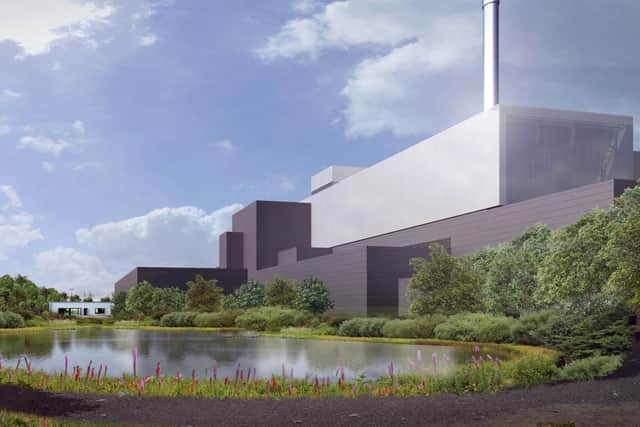Scotland's green targets under threat in move to burn more waste
There are currently five working incinerators for household waste in Scotland, with a capacity of 788,000 tonnes each year.
But a further six are due to start operating in the next three years, capable of burning a further 1,056,000 tonnes annually.
Advertisement
Hide AdAdvertisement
Hide AdPlans for at least four others, with a combined capacity of more than 800,000 tonnes, are also under consideration.


Scotland currently generates 2.41 million tonnes of domestic waste each yea, but by 2023 the country will have the facilities to burn 1,844,000 tonnes.
This could lead to up to 77 per cent of household trash being burned - well above the Scottish Government’s National Waste Strategy target of incinerating 14 per cent of municipal waste by 2030.
Circular economy
Friends of the Earth Scotland campaigners have raised concern over the plans, which they fear will derail recycling ambitions by increasing the need for rubbish as fuel.
They say the nation’s moves toward a circular economy - where products are kept in use longer, reused and eventually recycled - could also be jeopardised.
Now they are calling for a moratorium on building new facilities.
“Scotland’s incineration capacity is spiralling out of control,” said Sarah Moyes, plastic and circular economy campaigner at Friends of the Earth Scotland.
“We are locking ourselves into decades of sending useful materials up in smoke, as well as creating a barrier to moving to a circular economy by creating a never-ending demand for waste as fuel, diverting it from reuse and recycling.
Advertisement
Hide AdAdvertisement
Hide Ad“With over two million tonnes of household waste generated in 2018 and a target to recycle 70 per cent of that by 2025, our projected incineration capacity just doesn’t add up.”
Under Waste (Scotland) Regulations 2012, local authorities have until 2025 to divert biodegradable municipal waste such as food scraps and garden material from landfill - four years later than originally planned by the Scottish Government.
“There is no doubt that this rise in incineration is a major threat to Scotland’s recycling targets,” Ms Moyes said.
A message from the Editor:
Thank you for reading this story on our website. While I have your attention, I also have an important request to make of you.
The dramatic events of 2020 are having a major impact on many of our advertisers - and consequently the revenue we receive. We are now more reliant than ever on you taking out a digital subscription to support our journalism.
Subscribe to scotsman.com and enjoy unlimited access to Scottish news and information online and on our app. Visit https://www.scotsman.com/subscriptions now to sign up.
By supporting us, we are able to support you in providing trusted, fact-checked content for this website.
Joy Yates
Editorial Director
Comments
Want to join the conversation? Please or to comment on this article.